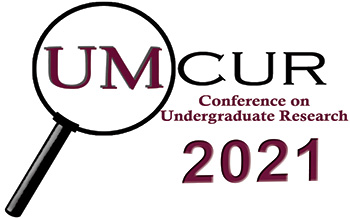Presentation Type
Poster
Faculty Mentor’s Full Name
Ginger Collins
Faculty Mentor’s Department
Communication Sciences and Disorders
Abstract / Artist's Statement
People who stutter often experience adversity in the workplace in the form of discrimination, lower pay, and low self-esteem (Plexico et. al., 2019; Klein & Hood, 2004; Gerlach et. al., 2018). The goal of secondary schools is to prepare all students for life after graduation, including postsecondary education/training, independent living, and employment. Students with disabilities are aided in this process through the development and implementation of an Individualized Transition Plan (ITP; Individuals with Disabilities Act, 2004). To successfully develop postsecondary transition plans to improve employment outcomes for students who stutter (SWS), the difficulties they experience when preparing for, seeking, and maintaining employment must be understood. Because speech-language therapy is the primary special service that SWS receive in school, a voluntary online survey was distributed to school-based speech-language pathologists in Montana. The survey consisted of twenty-one questions including true or false, free response, and multiple choice. The codes and themes of this qualitative analysis will be discussed regarding the wide range of therapeutic foci, experience preparing students who stutter for postsecondary employment, and level of confidence working with this population.
Category
Social Sciences
Preparing Students who Stutter for Postsecondary Employment: A Survey of SLPs in Montana
People who stutter often experience adversity in the workplace in the form of discrimination, lower pay, and low self-esteem (Plexico et. al., 2019; Klein & Hood, 2004; Gerlach et. al., 2018). The goal of secondary schools is to prepare all students for life after graduation, including postsecondary education/training, independent living, and employment. Students with disabilities are aided in this process through the development and implementation of an Individualized Transition Plan (ITP; Individuals with Disabilities Act, 2004). To successfully develop postsecondary transition plans to improve employment outcomes for students who stutter (SWS), the difficulties they experience when preparing for, seeking, and maintaining employment must be understood. Because speech-language therapy is the primary special service that SWS receive in school, a voluntary online survey was distributed to school-based speech-language pathologists in Montana. The survey consisted of twenty-one questions including true or false, free response, and multiple choice. The codes and themes of this qualitative analysis will be discussed regarding the wide range of therapeutic foci, experience preparing students who stutter for postsecondary employment, and level of confidence working with this population.
